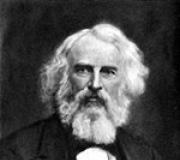How to become literate in Russian as an adult. Three simple exercises that will help you quickly improve your literacy
There is an opinion that spelling literacy is an innate trait. But in practice it turns out that linguistic flair is characteristic of those who read a lot from childhood. Therefore, we can conclude that literacy is an acquired quality, it can be developed, and the easiest way to do this is from a young age. We'll tell you how to improve your child's Russian language literacy by grades 2-3.
In order to train the rules of writing words, the child uses three centers:
eyes - see a written or printed word and visually remember it;
ears - perceive the word by ear, pronounce it, listen to the sound;
hand - write down the word and fix it in memory.
If an environment has been created in the home in which the child constantly uses his native language and develops spelling vigilance, then the transition from children's cards signed in block letters “Mom, happy holidays!” to school dictations written in “four” and “five”, occurs in a gradual and relaxed manner. Several effective ways can help with this.
Reading
Doesn't exist too early age to start reading. Listening to poetry and fairy tales, the baby perceives and copies the sounds of his native speech. Thanks to the alphabet with bright pictures, children develop visual associations with which letters certain words begin. Starting to read independently, the child expands his vocabulary, sees the correct spelling of words many times and automatically remembers it, so sometimes in the future it will be enough to close his eyes and imagine a word printed on paper to make sure that its spelling is correct. Therefore, the book should still remain one of the best gifts for children.
Solving crossword puzzles
Start with crossword puzzles in children's magazines, where instead of word problems there are pictures with numbers. It’s okay if at first the child incorrectly writes unstressed vowels into the boxes. Give him a “write-erase” pen and tell him how to actually spell the right word.
Oral word games
On the road, in line, at any need to wait for a word game - interesting way pass the time, as well as exciting speech training. Examples of such games are:
Rhymes;
words (similar to the game of “cities”);
name a word that begins with the syllable “pa”, “lo”, “tu” and so on;
make a sentence using words that start with the same letter, for example, “The fox catches the frog” or “The ball bothers the sailor.”
A lot of communication
Parental speech for children is the main set of rules native language, therefore, it depends on the adults in the family how the child will put emphasis in the words “calls” or “cakes”. If you notice that he makes the same speech error, carefully correct it in the response sentence.
- Mom, where do the forks go?
– The forks are placed in the top drawer of the table.
If you use words correctly and communicate a lot in your family on various topics, then even the inevitable speech errors from others will not be passed on to your children.
Word games on paper
Snake - write down as long a chain of words as possible, where each subsequent word begins with the last letter of the previous one;
gallows or “Field of Miracles”;
confusion - make words from mixed cards with letters;
making many small words out of one big one.
Fun with letters
Involve words and letters in collaborative play with your children.
Draw small comics on a topic that children are currently interested in (insects, Legos, fairies): homemade comics are often an incentive for independent reading;
invite your child to come up with and write a picture book together and a little story;
make collages by cutting out words from newspaper and magazine headlines;
make bracelets from wooden or plastic beads with letters;
Make a home decoration with a word that describes your family - the letters could be written on beautiful sea stones, for example.
Posters on the wall
In a house where there are children, there is often a poster with the alphabet hanging on the wall so that the kids pay attention to it and learn the letters. In the same way, you can ensure the clarity of the spelling of other words and terms. Bookstores offer a variety of posters on various subjects: flowers and animals, transport, sports, geometric shapes and so on. By correlating a visual image with the spelling of a word, a child from childhood remembers how it is spelled.
Scrabble
The board game Scrabble, popular all over the world, as well as its Russian version, Scrabble, develop linguistic logic. Among other famous board games to form words - “Boggle” and “Tick Tock Boom”.
Mnemonic memorization of rules
Children do not like to learn the rules, but they are always interested in playing and making jokes. Mnemonics offers to make it easier to memorize rules through rhyming, associations, and the creation of visual and sound images. Famous mnemonic examples:
It is not wonderful, not beautiful, but terrible and dangerous to write the letter t in vain;
I can’t bear to get married;
I put on clothes, I put on Hope;
That, something, either, or – don’t forget the hyphen.
Tell your children about these and other examples so that remembering some rules and exceptions does not seem boring and difficult to them.
Dictionaries
A spelling dictionary is a necessary book in every schoolchild's home. But in addition to turning to professional dictionaries, it is useful to have a personal dictionary for words that cause difficulties. Having typed 7-10 of these words, children can:
Write little dictations with them;
Make a crossword puzzle out of them;
write down especially difficult word all the colors of the rainbow;
play “find the mistake” or “fill in the missing letter.”
Exercises on copying, as well as morphological and phonetic analysis will be offered to children at school in large quantities in native language lessons. And at home, on the parent side, it is desirable to maintain a favorable atmosphere where reading, talking about literature and intellectual games with words are a natural and favorite part of life.
how to improve literacy?
I warn you right away that this process (increasing literacy) will not be quick, but this is understandable - any learning takes some time. So don't blame me.
So. You, as a person with healthy self-criticism, one day suddenly realize that, having studied for a certain number of years in various educational institutions, you have not achieved the required level of literacy in expressing your thoughts through text. For some reason, the great and mighty Russian language has not succumbed to you, and you often make annoying mistakes.
Errors in a written text can be of three types, so to speak:
1. Unintentional mistake
A trivial typo. It happens to everyone. You're in a hurry to get somewhere, something distracts you from the typing process, and you miss the right key. If this option is yours, then there is nothing to worry about. You just need to be more careful and always check your creations before releasing them into the world.
2. Intentional mistake
Like a typo. Plus distortion of words. It can be used (if necessary) to give a special style to the text. There are even “padonkof” movements based on this principle. This is the first subcategory. Now about the second one. Basically, pioneers suffer from this kind of garbage on all sorts of forums and blogs. And, presumably, they mask their illiteracy with this. Well, okay, to hell with them. This is not a clinic; I am not going to treat and re-educate representatives of the second category.
3. Unconscious error
But this is perhaps the most difficult case. When a person simply does not know how to correctly write this or that word, he creates commas as God wishes, etc. That is, of course, there is nothing fatal in this.
Especially if more than a half countries have no such “level” of literacy. But, unfortunately, few people think about how to improve their literacy (to avoid shame, I advise such writing fraternity before posting their text content on the site or in e-book visit my content educational service).
And for those who are thinking, who want to connect their lives in one way or another with the printed word, let me give a couple simple recommendations to improve literacy. Naturally, there will be no immediate results, but in the long term the situation will gradually change for the better.
Read books.
Yes Yes. It's that simple. Read absolutely diverse literature, read constantly and wherever possible.
You will get a lot of useful things out of reading. Visually, you will remember the correct spelling of words - and then, when you create the text yourself, when you enter a misspelled word, it will immediately catch your eye.
But literacy in spelling words is not everything. You will also learn about the style of the text, tricks of successful formatting, layout options for text blocks, and punctuation nuances.
I'm not even talking about the colossal expansion of your vocabulary and horizons - reading books will help with this much more effectively than watching a zombie box and listening to music waves through a radio.
Buy a spelling dictionary and textbooks on the Russian language.
If possible, get it for free. Well, everything is clear with the dictionary. But with textbooks...
I don’t know what about the modern ones, and I give preference to the old ones, released back in Soviet time. This literature is the rear of the writing person.
As they say, even an old woman can get into trouble—sometimes there are simply stalling situations. When you seem to have written everything correctly, but the worm of doubt still gnaws: what if something is wrong? Or my head just can’t cook due to yesterday’s reasons. Then we boldly take out a dictionary or textbook and dispel all doubts.
In order to become more literate, you need to want it.
Motivation helps on the path to improvement, and competent language helps on the path to achieving a higher status, because you must admit that illiterate speech and writing are repulsive and interfere with your career.
OK it's all over Now. As you can see, in order to improve literacy, you do not need to make any Herculean efforts or perform feats. Everything is much simpler. By the way, I still use in my work and life what I recommended to you. It works.
There is an opinion that spelling literacy is an innate trait. But in practice it turns out that linguistic flair is characteristic of those who read a lot from childhood. Therefore, we can conclude that literacy is an acquired quality, it can be developed, and the easiest way to do this is from a young age. We'll tell you how to improve your child's Russian language literacy by grades 2-3.
In order to train the rules of writing words, the child uses three centers:
eyes - see a written or printed word and visually remember it;
ears - perceive the word by ear, pronounce it, listen to the sound;
hand - write down the word and fix it in memory.
If an environment has been created in the home in which the child constantly uses his native language and develops spelling vigilance, then the transition from children's cards signed in block letters “Mom, happy holidays!” to school dictations written in “four” and “five”, occurs in a gradual and relaxed manner. Several effective ways can help with this.
Reading
There is no age too young to start reading. Listening to poetry and fairy tales, the baby perceives and copies the sounds of his native speech. Thanks to the alphabet with bright pictures, children develop visual associations with which letters certain words begin. Starting to read independently, the child expands his vocabulary, sees the correct spelling of words many times and automatically remembers it, so sometimes in the future it will be enough to close his eyes and imagine a word printed on paper to make sure that its spelling is correct. Therefore, the book should still remain one of the best gifts for children.
Solving crossword puzzles
Start with crossword puzzles in children's magazines, where instead of word problems there are pictures with numbers. It’s okay if at first the child incorrectly writes unstressed vowels into the boxes. Give him a “write-erase” pen and tell him how to actually spell the right word.
Oral word games
On the road, in line, whenever necessary, waiting for a word game is an interesting way to pass the time, as well as an exciting speech training. Examples of such games are:
Rhymes;
words (similar to the game of “cities”);
name a word that begins with the syllable “pa”, “lo”, “tu” and so on;
make a sentence using words that start with the same letter, for example, “The fox catches the frog” or “The ball bothers the sailor.”
A lot of communication
Parental speech for children is the main set of rules of the native language, therefore it depends on the adults in the family how the child will put emphasis in the words “calls” or “cakes”. If you notice that he makes the same speech error, carefully correct it in the response sentence.
- Mom, where do the forks go?
– The forks are placed in the top drawer of the table.
If you use words correctly and communicate a lot in your family on various topics, then even the inevitable speech errors from others will not be passed on to your children.
Word games on paper
Snake - write down as long a chain of words as possible, where each subsequent word begins with the last letter of the previous one;
gallows or “Field of Miracles”;
confusion - make words from mixed cards with letters;
making many small words out of one big one.
Fun with letters
Involve words and letters in collaborative play with your children.
Draw small comics on a topic that children are currently interested in (insects, Legos, fairies): homemade comics are often an incentive for independent reading;
invite your child to come up with and write a book with pictures and a short story together;
make collages by cutting out words from newspaper and magazine headlines;
make bracelets from wooden or plastic beads with letters;
Make a home decoration with a word that describes your family - the letters could be written on beautiful sea stones, for example.
Posters on the wall
In a house where there are children, there is often a poster with the alphabet hanging on the wall so that the kids pay attention to it and learn the letters. In the same way, you can ensure the clarity of the spelling of other words and terms. Bookstores offer a variety of posters on various topics: flowers and animals, transport, sports, geometric shapes, and so on. By correlating a visual image with the spelling of a word, a child from childhood remembers how it is spelled.
Scrabble
The board game Scrabble, popular all over the world, as well as its Russian version, Scrabble, develop linguistic logic. Other well-known word-forming board games include Boggle and Tick Tock Boom.
Mnemonic memorization of rules
Children do not like to learn the rules, but they are always interested in playing and making jokes. Mnemonics offers to make it easier to memorize rules through rhyming, associations, and the creation of visual and sound images. Famous mnemonic examples:
It is not wonderful, not beautiful, but terrible and dangerous to write the letter t in vain;
I can’t bear to get married;
I put on clothes, I put on Hope;
That, something, either, or – don’t forget the hyphen.
Tell your children about these and other examples so that remembering some rules and exceptions does not seem boring and difficult to them.
Dictionaries
A spelling dictionary is a necessary book in every schoolchild's home. But in addition to turning to professional dictionaries, it is useful to have a personal dictionary for words that cause difficulties. Having typed 7-10 of these words, children can:
Write little dictations with them;
Make a crossword puzzle out of them;
write down a particularly difficult word in all the colors of the rainbow;
play “find the mistake” or “fill in the missing letter.”
Exercises on copying, as well as morphological and phonetic analysis will be offered to children at school in large quantities during their native language lessons. And at home, on the parent side, it is desirable to maintain a favorable atmosphere where reading, talking about literature and intellectual games with words are a natural and favorite part of life.
Ecology of life: What is literacy. Is it just the error-free spelling of words and correct usage punctuation marks? I'm sure it's something more.
Is literacy important for a person? And for a writer?Should you become a writer if you have problems with literacy - errors in words and punctuation marks, confusion in formulating thoughts on paper?
This article is about the fact that most often the ability to express thoughts colorfully and accurately on paper goes hand in hand with literacy..
It is important to understand how to improve personal literacy, whether this can be done, and what steps to take to achieve this. The benefits of literacy are obvious, since in the age of unprecedented development of technology and virtual communication, people have partially lost the sense of their native language and forgotten the language rules.
This text is intended to remind you of the benefits of reading, the importance of maintaining the purity of language; will talk about ways to improve your own literacy not only in order to start writing correct articles, but also for general personal development. Without high level knowledge of the native language does not make a full-fledged, accomplished and cultured person.
“If culture is a home,” he said, then language is the key and
To front door, and to all the rooms inside.
Without a tongue, he said, you will get lost, you will remain homeless,
without full self-identity.”
H. Hosseini “And it flies through the mountains”
At the end of last year, a colleague asked me how to become literate. She's trying to write posts for social networks, she always has a lot interesting ideas swarms in my head, but there are huge problems with literacy! And not only with punctuation marks, but also with the wording of the phrases themselves. And as far as I can see from the people I communicate with at work, this is a common sore spot.
Unfortunately, today's trend is that people make mistakes more and more often, more and more often they cannot quickly and clearly formulate their thoughts in order to put them on paper. People don’t know how to write concise letters, and then they are surprised that no one answered their letters. General literacy has deteriorated greatly.
I had a “funny” incident. When almost 10 years ago my future husband and I filled out an application for marriage in the registry office, the registry office employee could not hide her delight and surprise when she accepted our completed application. Seeing our bewilderment, she immediately explained what the for a long time We are the first couple to fill out the application correctly the first time. Sad.
Let's remember our main question: is it worth starting to write something, thinking about future writing, if you have problems with literacy? My unequivocal answer is – it’s worth it. But you just need to start writing for yourself, without dreaming of the glory of a writer. First you need to come to a certain form(like athletes), which will later allow you to write for others, and not on the table. But in order to get into shape, you need to work hard, until you sweat.
And before moving on to the essence of our question, I propose to formulate for yourself what literacy is. Is it only the correct spelling of words and the correct use of punctuation marks? I'm sure it's something more.
Yes, the absence of errors is important, of course. And it is advisable to have innate literacy or some kind of inner sense that helps to write words correctly and choose commas correctly. But this is not all that for me is included in the broad concept of “literacy.” It is important to feel the language, to understand in what situations or contexts certain words, phrases and expressions should and can be used. This also includes life experience, erudition, observation, curiosity. Without this, a person cannot be fully literate.
So,Is it possible to improve your literacy level and how to do it?
Yes, you can and should do this throughout your life.
I suggest the following 10 steps to improve personal literacy:
1. Constantly turn to special resources-assistants.
3. Get yourself a Russian language dictionary in the format of a reference book.
4. Solve crosswords and puzzles.
5. Write dictations.
6. Attend literacy courses.
7. Submit written texts to a literacy test
8. When in doubt about the spelling of words, it is better to replace the word, a phrase with a similar meaning, or check the spelling with colleagues or friends.
9. You need to practice writing texts a lot. It’s better to start with simple short stories about everything. Here you can take the akyn’s rule - what I see, I sing. The main thing is simplicity. Don't invent topics, don't take too much difficult subjects to describe it, just look around. For variety, you can write down your dreams. This is doubly useful
10. Write expositions. Do you remember from school what this is? This is a written retelling short story in your own words. It is useful to combine reading with writing. We read a short story, rewrote it in our own words, and then compared it with the original.
The main thing is to exercise daily, then progress will not be long in coming. Good luck!




